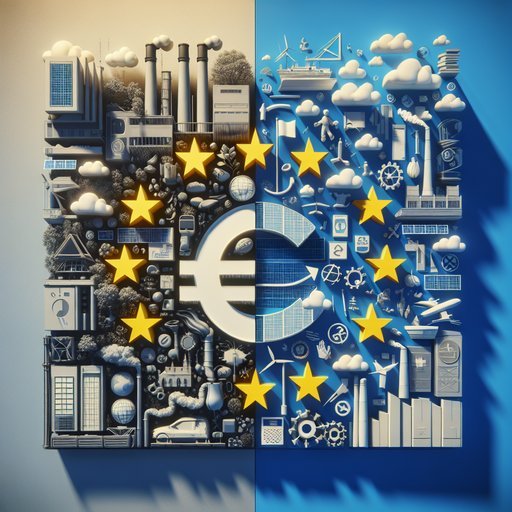
In a significant twist to European environmental policy, the European Union's decision to abandon its anti-greenwashing rules has ignited a heated discussion across political lines. Originally set to regulate misleading green claims, the directive faced staunch opposition from right-wing lawmakers who successfully pressured the EU executive into shelving the initiative. This debate not only underscores a critical moment for sustainable regulations but also highlights the growing ideological rift within legislative processes across Europe and beyond.
The anti-greenwashing directive was part of a broader EU effort to standardize how companies communicate about their environmental impacts and commitments. However, right-wing legislators criticized the directive as burdensome to businesses, arguing it stifles innovation and economic growth [1]. As opposition grew, the EU executive opted to withdraw the proposal, citing an insurmountable divide within Parliament that made any legislative progress unlikely. This development should be seen in the context of broader right-wing campaigns against regulatory oversight.
As seen with the creation of an official EU body to scrutinize NGO funding, there is a clear pattern of increased skepticism towards regulatory frameworks and nonprofit activities [2]. The alignment against perceived overreach in the green sector mirrors similar opposition in other policy areas, suggesting a strategic consolidation of ideological resistance. Public response has been mixed, with environmental activists expressing outrage at the decision, seeing it as a capitulation to corporate interests over planetary health. However, business groups have applauded the move, welcoming relief from what they viewed as a complex and costly regulatory landscape.
This schism reflects broader societal divides where economic priorities and environmental responsibility often clash. International observers note these developments parallel legislative behaviors elsewhere. In the United States, similar dynamics play out, with hardline stances on immigration and crime fostering discord [3][4][5]. As political voices continue to polarize issues along ideological lines, finding consensus becomes an increasingly elusive goal.
The EU's struggle over greenwashing rules may signal emerging challenges for global governance, where ideological stances and economic interests frequently collide.
Sources
- Commission to kill EU anti-greenwashing rules (POLITICO.eu, 2025-06-20)
- EU Parliament creates official body to probe NGO funding (POLITICO.eu, 2025-06-19)
- From the fringes to the mainstream: Meet the hardline anti-immigration activist who helped shape Trump's agenda (NPR, 2025-06-23)
- Claim right-wing podcaster suggested slaying of Minnesota lawmaker was 'message' to Democrats lacks key context (Snopes.com, 2025-06-20)
- Trump Allies Falsely Link Democrats to Minnesota Shooting Suspect—Despite His Pro-Trump Views (Time, 2025-06-17)
























